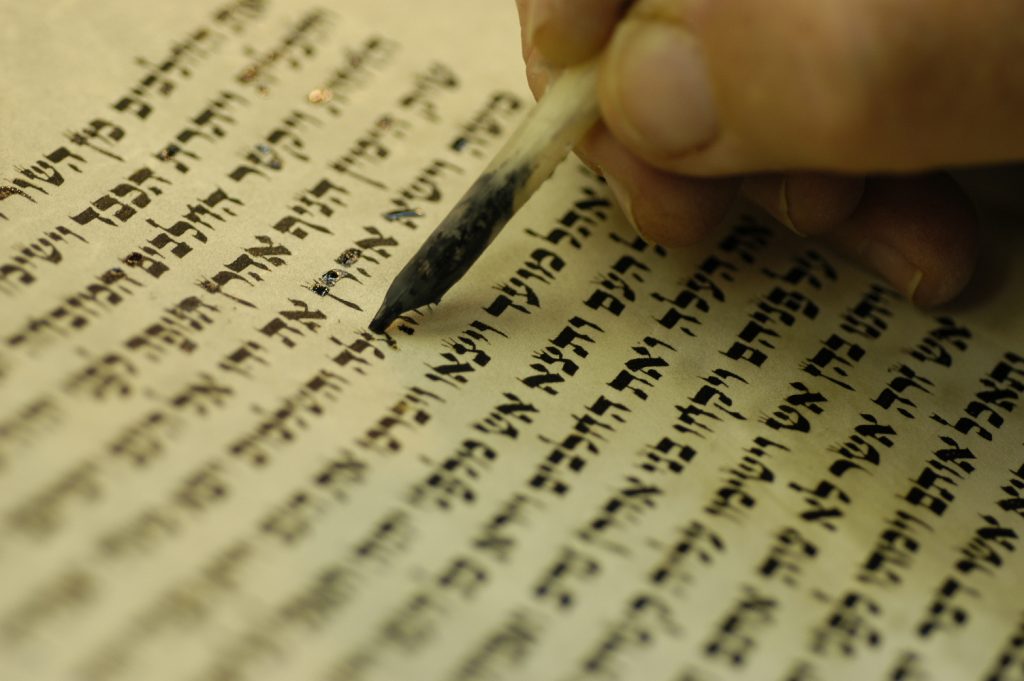
(3-4 Minute Read)
Deuteronomy 16:18-21:9
The Torah portion of Shofetim begins with a reminder of the system of judges and officers that the Most High through Moses had established for the Jewish people. Moses then elaborated on various commandments relating to proper offerings and the avoidance of idolatry. The authority of the judges as well as the kohenim, or Levitical priests, and even future kings, was also established. Guidelines for the conduct of these kings were also outlined. Moses further announced that the Jewish people would be required by the Almighty to respect “the next prophet like Moses,” and defined the “cities of refuge” as well as the consequences for false witnesses. Instructions for going to battle were discussed, as well as the procedures when a deceased person is found and the murderer or cause of death are unknown.
One of the aspects of this parasha, or Torah portion, is the description for the leadership and conduct of the future kings of Israel. The king is prohibited from multiplying wives and horses, especially from Egypt, and excessively amassing wealth. He is also required to write a Torah scroll for himself, reading and studying it daily.

There is a discussion in the Mishna and the Talmud as to whether or not the king himself is required to write the Torah scroll. The Mishna says:
And he shall write in his own name a Sefer Torah. When he goes forth to war he must take it with him; on returning, he brings it back with him; when he sits in judgment it shall be with him, and when he sits down to eat, before him, as it is written: and it shall be with him and he shall read therein all the days of his life.
(M Sanhedrin 2:4)
And the Talmud elaborates on this concept:
A Tanna taught: And he must not take credit for one belonging to his ancestors. Rabbah said: Even if one’s parents have left him a Sefer Torah, yet it is proper that he should write one of his own . . .
(BT Sanhedrin 21b)
What is the importance of actually writing a Sefer Torah (Torah scroll) rather than merely inheriting one? Writing a Torah scroll requires effort and involvement in a very personal way. Writing a Torah scroll is an active method of bringing the Torah into one’s life; inheriting a Torah scroll is a passive form of receiving the Torah. Obviously inheriting a Sefer Torah is a good thing, but actively writing a Torah scroll is even better.
The idea presented here is that Jewish leadership is required to actively make Torah study and observance a central focus of their leadership. Similarly, Devarim (Deuteronomy) 17:19 states that the Jewish king shall read in this Torah scroll “all the days of his life.” Thus, the premise is that the only way Jewish leadership can be successful is by making the Torah an active part of their daily lives.
While these commandments refer specifically to Jewish kings, the principles apply to all Jewish persons. Rabbi Elazar HaKappar is famously attributed as saying in Pirkei Avot 4:21:
“Envy, lust, and desire for honor drive a man from the world.”
Accordingly, these same three facets are described in the Torah text itself, in particular in Devarim (Deuteronomy) 17:16-20:
[The king] shall not multiply horses to himself… Neither shall he multiply wives to himself, that his heart turn not away; neither shall he greatly multiply to himself silver and gold… [the king] shall write him a copy of this Torah in a book, out of that which is before the priests the Levites… And it shall be with him, and he shall read therein all the days of his life; that he may learn to fear the L-RD his G-d, to keep all the words of this Torah and these statutes, to do them; that his heart be not lifted up above his brethren, and that he turn not aside from the commandment, to the right hand, or to the left; to the end that he may prolong his days in his kingdom, he and his children, in the midst of Israel.

In other words, the guidelines of the Torah outlined by Moses for future Jewish leadership emphasize that Jewish leaders cannot be successful if they allow themselves to be consumed by envy, greed, and lust (avoiding excessive wives, horses, or wealth). And they must also seek humility (not allowing their “hearts to be lifted up above” the others in the community).
Interestingly enough, we see throughout the Tanakh (Hebrew Bible) the consequences even for great Jewish leaders resulting from not fully adhering to these guidelines as defined by both Torah and Pirkei Avot. The most obvious example is King Solomon, whose immense wealth and especially his thousand wives and concubines ultimately turned him away from being fully dedicated to the Eternal One (Melekhim Aleph / I Kings 11). King Hezekiah’s pride and seeking of honor from others also apparently had disastrous consequences (Deverei HaYamim Bet / II Chronicles 32, Melekhim Bet / II Kings 20). Ironically, Gideon the shophet, or judge, rejected an offer to establish hereditary rulership beginning with himself, but instead married many wives. Later, one of the sons of his numerous concubines, Avimelekh, destroyed Gideon’s legacy and slaughtered his entire family (Shophetim / Judges 8-9). In other words, even though Gideon was not a literal king, his failure to adhere to the Torah guidelines for Jewish leadership resulted in catastrophe.

Perhaps it should be noted that the the principles of actively pursuing the Torah and avoiding envy, lust, and desire for honor apply to all of the Jewish people, if only because, in a sense, we are all leaders. The Jewish nation consists of communities, and communities are comprised of families, and families are made up of individuals. In addition to community leadership roles, most Jewish adults are parents, spouses, or otherwise involved in a role of family leadership. And even a single Jewish person is essentially a “leader” of himself or herself. Perhaps this is why our great rabbis, such as Rabbi Elazar HaKappar, declared that the concepts relating to successful, Torah-based Jewish leadership are universal to all of the Jewish people (as well as the rest of mankind).
May the Holy One, Blessed Be He, empower us to make the Torah an active part of our daily lives, and not just a passive heritage that we inherit from others. And may be bring the tenets of successful Jewish leadership into all aspects of our communities, our families, and our lives.


